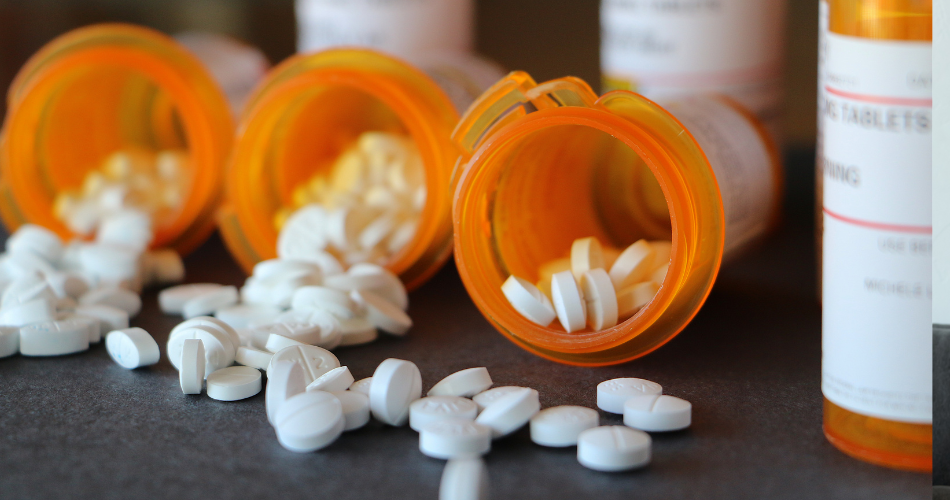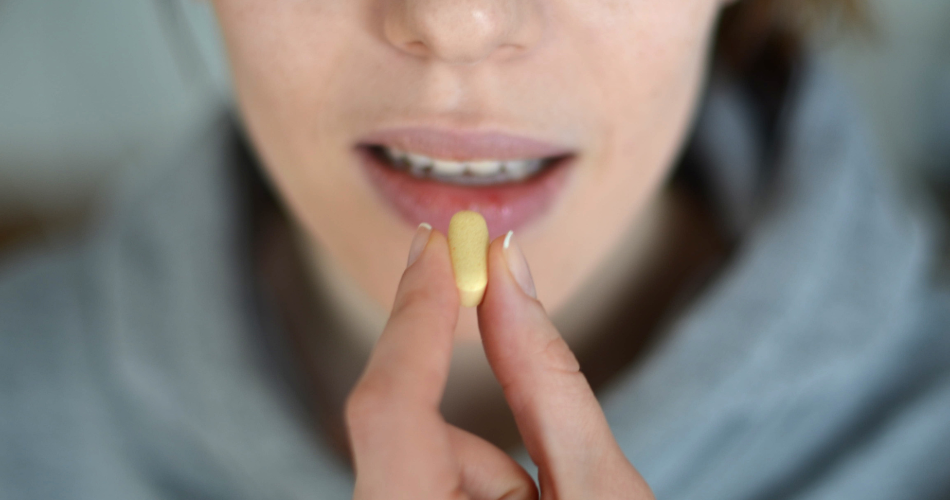
For some people, Adderall can be a life-changing medication. For others, it may have little to no effect. If you’re in the second group, or if you’re simply interested in exploring alternatives to Adderall, the good news is that there are many other options for managing the symptoms of ADHD.
If you or a loved one are struggling with mental health, don’t wait! Call us today or schedule a free assessment to take the first step towards healing!
What Is Adderall?
Adderall is the brand name of a prescription medication that contains equal amounts of racemic amphetamine and dextroamphetamine, both of which are central nervous system (CNS) stimulants.
This medication is sometimes prescribed to treat narcolepsy, but its most common use is to help people who have attention-deficit/hyperactivity disorder (ADHD):
- According to the U.S. Centers for Disease Control and Prevention (CDC), about seven million children and adolescents ages 4-17 and about 15.5 million adults ages 18 and above have been diagnosed with ADHD.
- The CDC has also reported that about 53% of children and adolescents and about 33% of adults with ADHD take some type of prescription medication to help them manage their symptoms.
- A reader survey conducted by ADDitude magazine found that Adderall was the second most common ADHD medication among children with ADHD, trailing only Concerta.
Adderall’s positive effects can include elevated mood, enhanced focus, improved concentration, and decreased restlessness.
The drug can also cause a variety of adverse effects, including dizziness, dry mouth, headaches and stomach aches, increased heart rate, loss of appetite, and irritability. Less common but more serious potential side effects include vision problems, anxiety, depression, psychosis, and seizure.
Though Adderall has proved to be quite beneficial for millions of people, it isn’t right for everyone. Common reasons why patients may seek Adderall alternatives include:
- The medication didn’t improve their symptoms as much as they had hoped.
- They developed side effects that became intolerable or threatened their health.
- They want to explore non-medication options for managing their symptoms.

Adderall Alternatives
The range of Adderall alternatives includes other medications, various forms of therapy, and several self-care techniques.
Medications
The medication category of Adderall alternatives can be further divided into two subgroups: stimulants and non-stimulants.
Stimulants are the most popular ADHD meds. In addition to Adderall, other frequently prescribed stimulant ADHD medications include:
- Concerta (methylphenidate in extended-release form)
- Ritalin (methylphenidate in immediate-release form)
- Vyvanse (lisdexamfetamine)
Examples of non-stimulants that can help people with ADHD include:
- Effexor (venlafaxine)
- Intuniv (guanfacine)
- Kapvay (clonidine)
- Strattera (atomoxetine)
- Wellbutrin (bupropion)
If you’ve been taking Adderall, but you’re not satisfied with how you’ve responded to it, you should consult with your physician. They may adjust your dosage or recommend an alternative.
Please note that it is never a good idea to alter your dosage or stop using any prescription medication without talking to your doctor first.
Recommended: Anxiety vs. ADHD
Therapies
Many people with ADHD benefit from therapy, either as an Adderall alternative or as a complement to taking medication.
As with medications, no single form of therapy is ideal for everyone – but after reviewing your unique circumstances, an ADHD treatment provider may recommend options.
Therapy Options Available:
- Cognitive behavioral therapy (CBT): One of the pillars of CBT is the belief that negative thoughts (or cognitions) are the source of many emotional problems and maladaptive behaviors. CBT sessions can help you identify your own negative thought patterns and irrational beliefs, then replace them with healthier ways of thinking and acting.
- Dialectical behavior therapy (DBT): DBT sessions focus on skills development in the areas of mindfulness, distress tolerance, emotion regulation, and interpersonal effectiveness. This approach was developed in the 1980s to treat people with borderline personality disorder, but through the years it has proved to be a valuable component of care for people who have several other mental health concerns, including ADHD.
- Transcranial magnetic stimulation (TMS) therapy: Unlike CBT and DBT, which are forms of psychotherapy, or talk therapy, TMS is a noninvasive procedure that uses brief electromagnetic pulses to stimulate activity in targeted brain regions. TMS doesn’t require any sedatives or anesthesia. Patients are awake and alert throughout the procedure, and can usually resume all regular daily activities once their TMS session is complete.
CBT, DBT, and other types of psychotherapy may be provided in both individual and group settings.
Individual therapy sessions are safe and confidential environments where you can have a one-on-one conversation with a trained professional, while groups offer the opportunity to practice new skills and share support with others who are working toward a similar goal.
Some people with ADHD may also benefit from family therapy sessions. In these sessions, loved ones can address relationship issues and learn how to better support each other.
Self-Care
Treatment for ADHD often involves developing skills to help manage your symptoms. These skills can also prevent minor challenges from turning into major problems.
For some people, these self-care skills can serve as alternatives to Adderall or other medications. In many cases, however, they provide the most value when used alongside medication or therapy.
Examples of techniques and activities that may help you take greater control of your thoughts and behaviors include:
- Following a healthy diet plan: The value of nutritious food isn’t limited to how it affects your body. A healthy diet can also boost your brain power. The Attention Deficit Disorder Association (ADDA) recommends a diet that is rich in proteins, complex carbohydrates, and healthy fats such as omega-3 and omega-6 fatty acids.
- Getting regular exercise: As with food, exercise can also benefit your mind as well as your body. Researchers have determined that aerobic exercise such as walking, running, bike riding, swimming, and playing tennis can ease ADHD symptoms and improve brain functions such as memory, cognitive flexibility, and self-control.
- Meditating and practicing mindfulness: These activities encourage you to remain fully present in the moment and resist the urge to respond reflexively to your own thoughts or to events around you. A 2015 study in the World Journal of Psychiatry found that mindfulness meditation may alleviate some ADHD symptoms and increase brain activity in regions related to sustained attention.
Remember: There’s single technique or course of treatment that’s perfect for everyone who has ADHD. What’s most important is finding the services and approaches that are right for you.

Find Help for ADHD in Atlanta
Atlanta Integrative Psychiatry offers personalized outpatient care for adults who have ADHD and other mental health concerns.
At our ADHD treatment center near Atlanta, you can work with a small team of dedicated professionals. We will assess the biological, psychological, and social aspects of your mental health concerns, then develop a customized plan that can help you achieve a healthier and more satisfying life.
To learn more or to schedule a free assessment, please visit our Appointments page or call us today.





